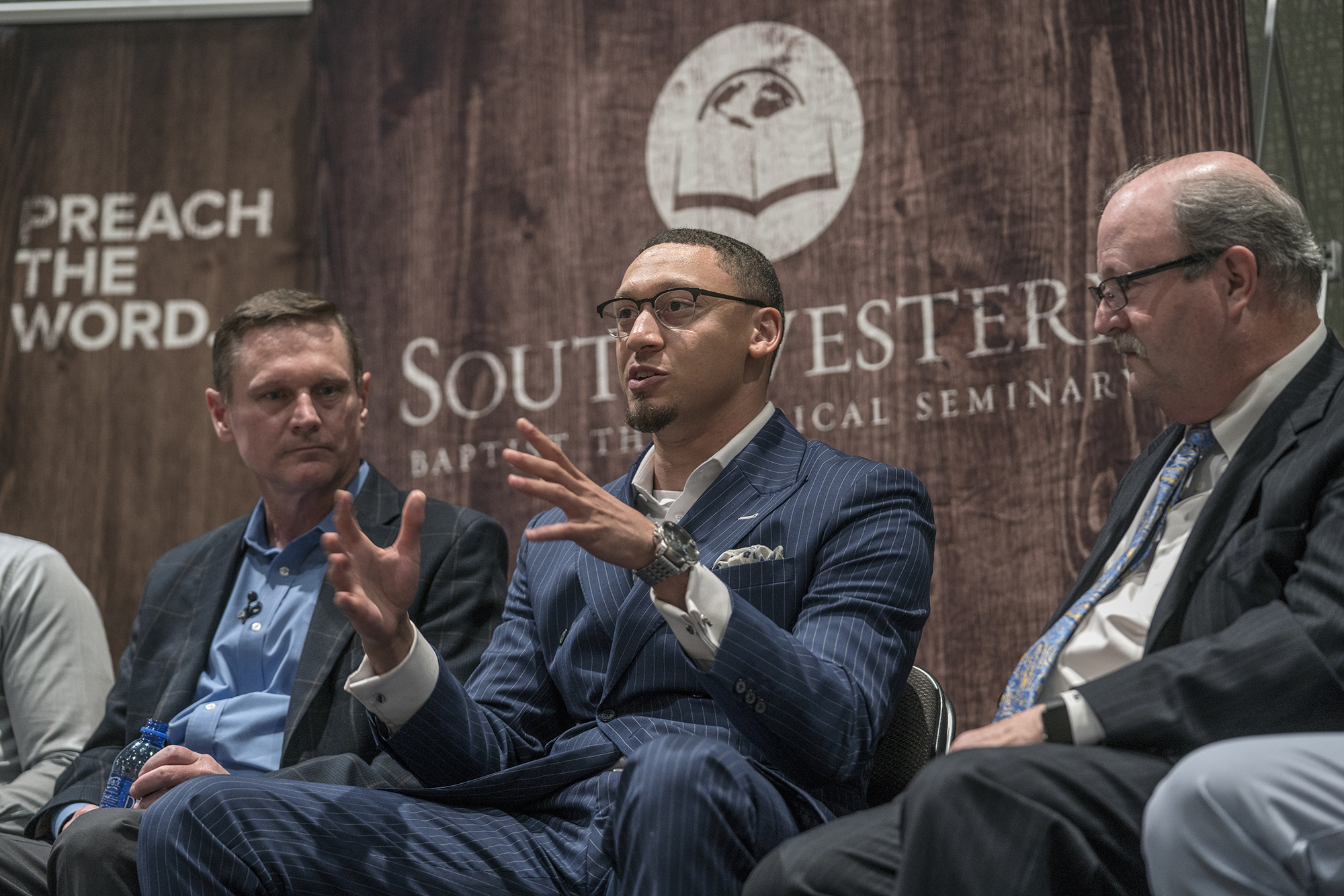
DALLAS (BP) — Prior to the annual Southern Baptist Pastors’ Conference, Southwestern Baptist Theological Seminary hosted a Text-Driven Preaching “MicroConference” June 10 on the value of text-driven preaching.
 Moderated by David Allen, dean of Southwestern’s school of preaching, the conference featured a panel of two SWBTS professors and three students who advocated text-driven preaching as the best means for communicating God’s Word to His people.
Moderated by David Allen, dean of Southwestern’s school of preaching, the conference featured a panel of two SWBTS professors and three students who advocated text-driven preaching as the best means for communicating God’s Word to His people.
On the definition of text-driven preaching, particularly its relation to expository preaching, master’s degree student Andre Kirkland, associate pastor of student ministry at Concord Baptist Church in Dallas, noted, “All text-driven preaching is expositional, but not all exposition is text-driven.”
Deron Biles, associate professor of pastoral ministries and preaching, elaborated, “[Text-driven preaching] is the substance, structure and spirit of the text informing the substance, structure and spirit of my sermon so that what I am saying about God’s Word comes from the very text that I am preaching.”
“Exposition is a broad term,” said Southwestern Vice President for Student Services Kyle Walker. “It speaks to this idea of exposing the truth. But there are no specific ramifications for how to do that implied by the term ‘exposition.’ So people do it a number of different ways, some of which I believe are not according to the terms of the text.
“So what we’ve done is say, ‘Look, exposition is great and we don’t want to throw that term away, but we would like to suggest a tighter definition of how we want to expose the text in order to be faithful to the text.'”
Mac Brunson, pastor of Valleydale Church in Birmingham, Ala., and a current Ph.D. student in the school of preaching, said, “It’s been a great benefit over the last couple of years to me to dig deeper, to study more, to work harder at letting the text do the speaking, instead of Mac Brunson.” Text-driven preaching, he said, is letting the text speak through you.”
Clay Smith, a Ph.D. student and senior pastor of First Baptist Church in Matthews, N.C., said it is tempting for preachers to approach a week of sermon preparation saying, “How can I find a text that supports my idea?” This is where the word “driven” comes into play, he said.
“What I want to do on Sunday morning is re-present what God has already said,” Smith said. “So what we believe is that not only is what God said inspired, but how God said it is equally inspired. So the task of the week is figuring out what God has said, the manner in which He said it, and how I can re-present that on Sunday morning.”
Within this week of preparation, Kirkland said, prayer is the number one priority for the pastor.
“I think that’s where your power is. The text should do something within you first of all, before you even put the pen to the pad. Because if you haven’t been convicted by it, if you haven’t felt it, then your parishioners aren’t going to feel it out in the pew,” Kirkland said.
Brunson affirmed, “If you, as the pastor, don’t meet the Master in the text, I don’t care what you do with it; it’s not going to preach.”
During a Q&A time, Walker encouraged pastors not to take their congregations from “zero to 60” in one Sunday regarding a move from topical preaching to text-driven preaching. He suggested starting with smaller segments of Scripture, such as the Sermon on the Mount, before preaching through entire books in order to grow an appetite for the Word of God in their church.
“Churches that get used to an expositor in this way almost demand one when they go to choose the pastor to follow, because their appetite is so ingrained to have it,” Walker said. “They’ve tasted the Word of God and they’re not going to demand anything less.”












